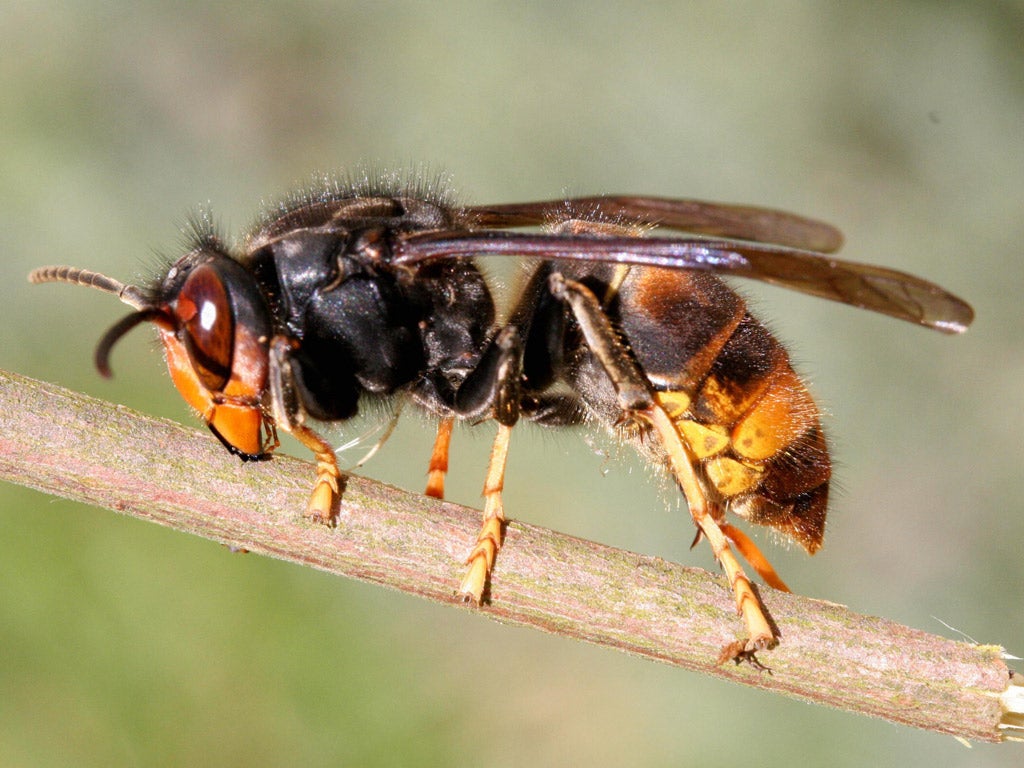Potentially deadly predatory Asian hornets with vicious sting heading towards Britain
It is feared that vespa velutina nigrithorax, which can grow to four-times the size of a British honey bee, could attack the indigenous bee population

Your support helps us to tell the story
From reproductive rights to climate change to Big Tech, The Independent is on the ground when the story is developing. Whether it's investigating the financials of Elon Musk's pro-Trump PAC or producing our latest documentary, 'The A Word', which shines a light on the American women fighting for reproductive rights, we know how important it is to parse out the facts from the messaging.
At such a critical moment in US history, we need reporters on the ground. Your donation allows us to keep sending journalists to speak to both sides of the story.
The Independent is trusted by Americans across the entire political spectrum. And unlike many other quality news outlets, we choose not to lock Americans out of our reporting and analysis with paywalls. We believe quality journalism should be available to everyone, paid for by those who can afford it.
Your support makes all the difference.A swarm of potentially deadly vicious Asian hornets with a devastating sting are heading towards Britain's shores.
It is feared that vespa velutina nigrithorax, which can grow to four-times the size of a British honey bee, could attack the indigenous bee population.
The Department for Environment, Food and Rural Affairs has said it believes the species may be about to spread to Britain and described the insects as 'invasive and predatory'.
A statement from Defra said: 'It has spread very quickly to many areas of France where it is reported to be causing many problems for both beekeepers and biodiversity in the country. The hornet can predate on bee colonies, causing significant harm.'
The insects are believed to have entered France accidentally in a consignment of pottery from China. Last year, a 54-year-old man was stung to death after disrupting a nest in France’s Loire Valley.
Though smaller than the indigenous species of Hornet the insect packs a vicious sting and is considered more predatory.
Defra said “monitoring for arrival is strongly encouraged” and urged beekeepers in south and south-east England to be on the lookout.
According to the London Evening Standard Defra wants London beekeepers to consider hanging special traps and report sightings to the BeeBase website.
Join our commenting forum
Join thought-provoking conversations, follow other Independent readers and see their replies
Comments